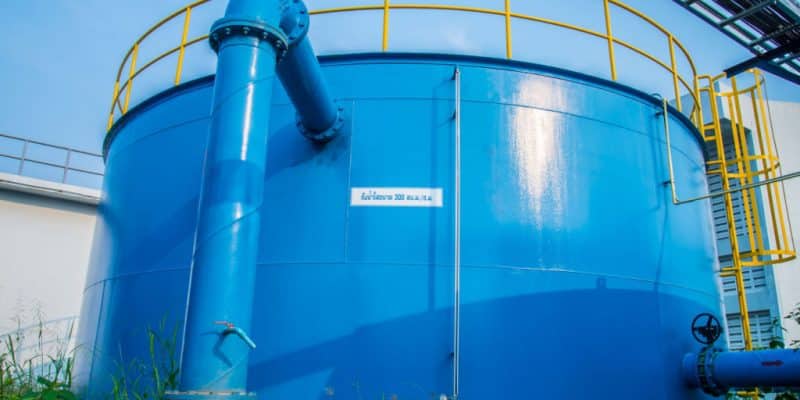In South Africa's Gauteng province, demand for drinking water is outstripping Rand Water's supply. To close the gap, the state-owned company is planning to build 12 additional reservoirs to improve water storage by 2028.
Within five years, residents of the suburbs of Meredale, Daleside, Klipfontein, Germiston, Hartebeeshook, Bronberg, Brakpan and Selcourt in South Africa’s Gauteng province will benefit from new drinking water supply infrastructure. On March 14, 2023, South Africa’s Minister of Water and Sanitation, Senzo Mchunu, announced the construction of 12 water tanks in these areas. The state-owned Rand Water will implement the project, which aims to restore the balance between demand and supply in Gauteng.
The current demand for drinking water in the South African province is estimated at 4.563 million cubic meters per day, compared to the 4.431 million cubic meters supplied by Rand Water daily.
1.5 billion investment by 2028
“Of the 4.431 million m3 that are pumped into the municipalities, at least 5% are lost to the Rand Water system, so only 3.968 million m3 per day reach the people. And of that 3.968 million m3, an estimated 45% is lost to municipal systems as non-renewable water, when the international standard should be 15% or less,” explains Senzo Mchunu, South Africa’s Minister of Water and Sanitation.
The 12 new reservoirs will store an additional 1.530 million cubic meters of water per day in Gauteng to guarantee the supply of this province of nearly 16.1 million people by 2028. The future facilities will be supplied by the Integrated Vaal River System (IVRS), the largest tributary of the Orange River. Rand Water purifies this water which is then purchased by municipalities and water agencies and distributed to businesses and residents.
Read Also – SOUTH AFRICA: The country’s largest water reservoir goes operational in Vlakfontein
Overall, Rand Water is expected to invest 28 billion South African rand (over $1.5 billion) by 2028. With the 12 new reservoirs to be built in Gauteng, the number of such facilities in the province will increase to 72, with a daily storage capacity of 7.630 million cubic meters of water.
Inès Magoum






